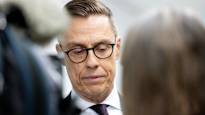President Alexander Stubb’s participation in the Bilderberg Group meeting in Stockholm from June 13 to 15 has sparked curiosity and speculation among political circles. These informal gatherings are designed to bring together prominent influencers from Europe and North America, fostering a platform for confidential discussions and exchanges of ideas. The President’s office has confirmed Stubb’s attendance, emphasizing the significance of such high-profile gatherings in shaping international dialogue and cooperation.
The Bilderberg meetings have a rich history dating back to 1954, symbolizing a forum where politicians, researchers, journalists, and business leaders converge to engage in discussions that often remain shielded from public scrutiny. The allure of these gatherings lies in the opportunity for candid conversations and networking among individuals who wield significant influence in their respective fields. It is within these closed-door sessions that ideas are exchanged, alliances are formed, and decisions that can impact global affairs are subtly shaped.
As former Prime Minister and current Strategic Advisor at the Tony Blair Institute, Sanna Marin’s presence at the meeting underscores the diverse range of perspectives and expertise represented at the Bilderberg gathering.
Her insights and contributions, alongside other distinguished participants such as Jussi Herlin, Vice Chairman of Kone Corporation, and Erkki Liikanen, Chair of the IFRS Foundation and former Governor of the Bank of Finland, enrich the discourse and broaden the scope of discussions.
The secrecy surrounding the discussions held at Bilderberg meetings has often fueled speculation and conspiracy theories, with critics questioning the transparency and accountability of such closed gatherings of influential figures. However, proponents argue that the confidential setting allows for frank and uninhibited exchanges, fostering a more open dialogue than what is typically possible in public forums.
These gatherings serve as a microcosm of the interconnected world of politics, business, and academia, where relationships are forged and insights shared, shaping the collective mindset of global decision-makers.
The networking opportunities offered by events like the Bilderberg meeting extend beyond the confines of the conference room, often leading to collaborations and initiatives that have far-reaching implications.
The presence of President Stubb and other prominent figures from Finland underscores the country’s active engagement in international dialogues and its commitment to fostering relationships with key global stakeholders. Their participation in such high-profile events not only elevates Finland’s visibility on the international stage but also highlights the country’s role in shaping global conversations and policies.
As the outcomes of the Bilderberg meeting ripple through the corridors of power and influence, the impact of these discussions may reverberate far beyond the confines of the conference room, shaping the contours of future policies and collaborations.
The convergence of diverse perspectives and expertise at these gatherings paves the way for innovative solutions to complex global challenges, underscoring the importance of dialogue and cooperation in navigating an increasingly interconnected world.
In conclusion, the Bilderberg meeting in Stockholm serves as a testament to the power of dialogue and collaboration in shaping the global agenda. As leaders and influencers come together to exchange ideas and perspectives, the ripple effects of these discussions are likely to resonate across continents, influencing decision-making processes and fostering a more interconnected and cooperative world.

